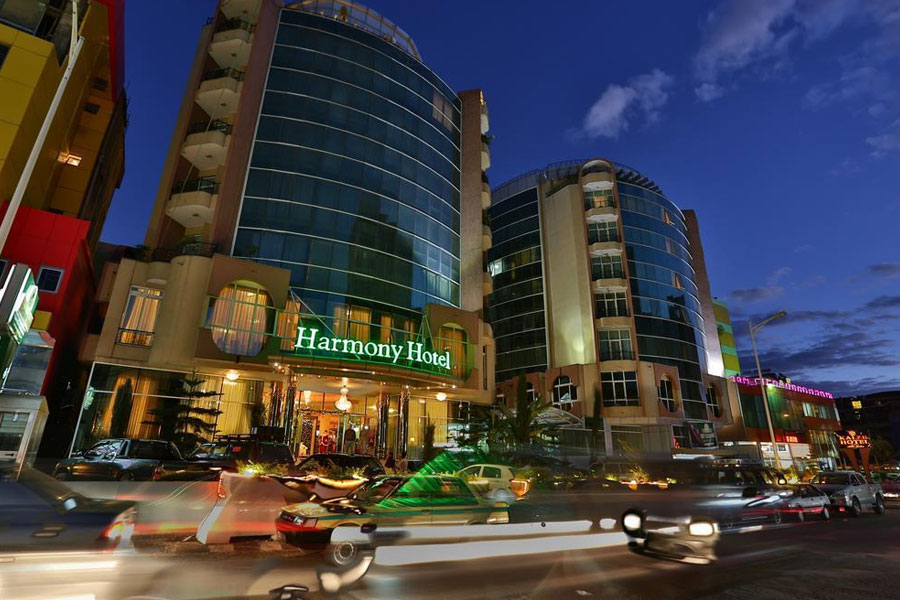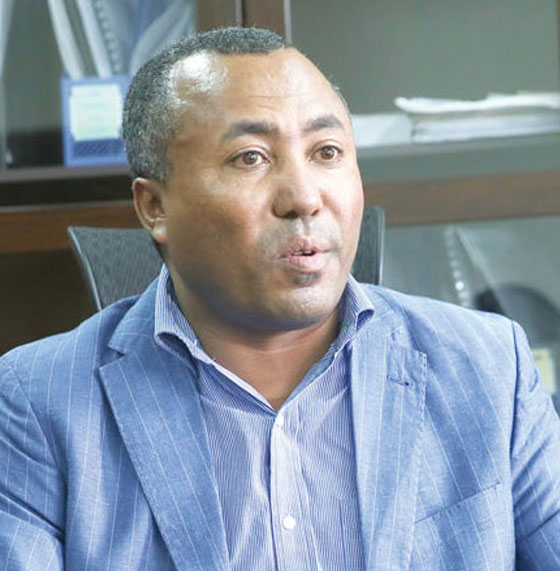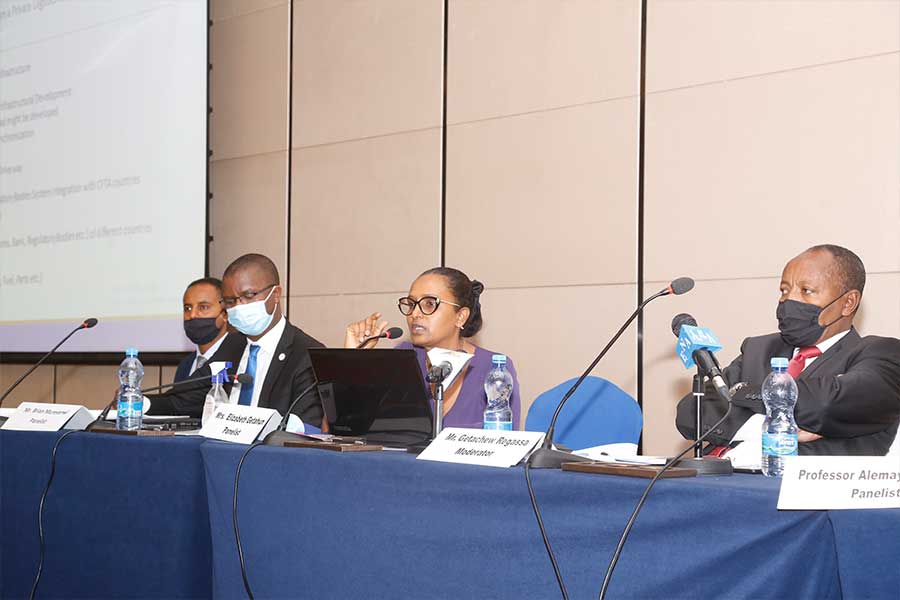
Viewpoints | Jan 22,2022
Dec 4 , 2021
By Abisola Alaka
Sub-Saharan Africa can feed its people, given its agricultural sector is transformed significantly from a traditional to a modern farming system. This transformation, however, requires the full participation of women, writes Abisola Alaka, senior administrative officer of the Food & Agriculture Organisation (FAO) of the United Nations Subregional Office for Eastern Africa and Representative to the African Union and UNECA.
Agricultural transformation is a process through which farms move from highly subsistence-oriented production systems towards more specialised and business-oriented production processes. These processes involve productivity growth, which itself depends on increased uptake of modern technologies, innovations and inputs that improve the use of land and labour. It further requires improved efficiency in value addition, market access, as well as enhanced resilience against climate, market and political shocks.
No country has been able to sustain a rapid transition out of poverty, food insecurity and malnutrition without raising productivity in its agricultural sector. Apart from fulfilling the food and nutrition needs, agriculture is the predominant source of employment in many sub-Saharan Africa (SSA) countries, accounting for 63pc of rural household incomes. Improved agriculture can therefore raise incomes and kick-start the economy on a path to growth – so that poverty falls and human well-being rises.
Despite these contributions, the sector is underperforming in many parts of SSA, implying that production and productivity have remained very low and hence unable to generate enough food for the growing population. Land productivity rates, yields per unit of area, are among the lowest in the world, with an estimated yield gap of up to 80pc.
Nearly 80pc of farm activity is done by smallholders and is characterised by mostly small to medium scale family-led farms that rely almost entirely on manual labour for most farm tasks. Smallholder farms are operating under very low levels of mechanisation. It is estimated that over 60pc of agricultural power is still provided by human labour, mostly by women, the elderly and children. Where animals are used, about 25pc of farm power is provided by animal traction, while only a fifth of mechanisation is provided by engine power. Partly as a result, the region is a net importer of food, although it has 60pc of the world’s uncultivated arable land.
On the other hand, the population growth in SSA is ballooning at an unprecedented rate. SSA accounts for more than 950 million people, approximately 13pc of the global population. By 2050, this share is projected to increase to almost 22pc. This fact is worrisome because the existing agricultural system is not guaranteeing physical and economic access to sufficient, safe and nutritious foods for the existing population, let alone the impending generation.
A recent publication by FAO and its partners on the state of food security and nutrition in Africa highlights the fact that the number of hungry people in the region has increased by 50 million since 2014. Now, it stands at a quarter of a billion. The report further indicates that, in addition to hunger, millions of people suffer from widespread micronutrient deficiencies.
Despite these challenges, SSA can feed its people, given its agricultural sector is transformed significantly from a traditional to a modern farming system. This transformation, however, requires the full participation of women as producers, processors, traders, consumers, scientists, and policymakers. Women are essential agents of change in ensuring the shift to more efficient and climate-resilient production systems, which in itself requires a concerted effort to address the constraints that reduce women’s productivity in agriculture.
Empirical evidence on the gender gaps indicates that women face major challenges in agriculture and rural employment. Compared with their male counterparts, women are less represented in decision-making processes. They have less education and less access to agricultural information and extension services and use less financial services. They are much less likely to buy inputs such as fertiliser, improved seeds and mechanical equipment. They operate smaller farms, on average, and keep less livestock, typically of smaller breeds, and earn less from the livestock they do own. They have a greater overall workload that includes a heavy burden of low-productivity activities.
COVID-19 is the latest addition to this calamity, obscuring the lives of women in agriculture, who are struggling to cope with the restrictions to limit the spread of COVID-19. The effects of the pandemic are disproportionately affecting rural women’s productive, reproductive and income-generating capacities. Particularly, it is affecting their agricultural activities more severely than those of men, because it tends to reduce their economic opportunities and access to resources, while at the same time increasing their workloads and escalating gender-based violence.
Closing the gender gaps in agriculture would therefore generate significant gains for the agriculture sector and for society. If women had the same access to productive resources as men, they could increase yields on their farms by up to 30pc. This could raise total agricultural output in many nations by up to four percent. Production gains of this magnitude could reduce the number of hungry people in the world up to 100 to 150 million people. This means empowering women in agriculture, value chains and trade will greatly accelerate the achievement of the Sustainable Development Goals (SDGs) and the Malabo Commitments.
We cannot, therefore, talk about transforming agriculture if we do not embrace gender equality, which is a fundamental condition for transforming agriculture. All dimensions of the transformation, including policy, economic, innovation and technology, production and productivity and digitisation must be addressed to include women.
In practical terms, the attainment of gender equality and the economic and social empowerment of women in agriculture requires that women’s voices must be heard and their influence felt in decision-making at household, local, national and global levels. Enhanced agricultural policies, programmes and incentives should be in place to improve rural livelihoods. With sound policies, financial and productive resources, knowledge and skills, and technology and innovation should be equally accessible to poor rural women and men. Policy responses should also consider women’s roles in agri-food systems during and post-COVID-19, and ensure that their multiple needs are addressed adequately.
Tackling gender disparities is a low hanging fruit and a quick win for achieving agricultural transformation towards zero hunger and sustainable development. Empowered women can be powerful drivers of change to lift themselves and their family members out of poverty, hunger and malnutrition. Significant efforts are therefore required to address structural causes of gender inequality and ensure that investments equally benefit men and women.
PUBLISHED ON
Dec 04,2021 [ VOL
22 , NO
1127]


Viewpoints | Jan 22,2022

Fineline | Jun 20,2020

Radar | Apr 16,2022

Fortune News | Jul 11,2021

Radar | Aug 07,2021

Radar | Feb 27,2021

Commentaries | May 23,2021

Radar | Jun 12,2023

Commentaries | Jul 02,2022

Sunday with Eden | Dec 19,2021

My Opinion | 131586 Views | Aug 14,2021

My Opinion | 127942 Views | Aug 21,2021

My Opinion | 125917 Views | Sep 10,2021

My Opinion | 123541 Views | Aug 07,2021

Dec 22 , 2024 . By TIZITA SHEWAFERAW
Charged with transforming colossal state-owned enterprises into modern and competitiv...

Aug 18 , 2024 . By AKSAH ITALO
Although predictable Yonas Zerihun's job in the ride-hailing service is not immune to...

Jul 28 , 2024 . By TIZITA SHEWAFERAW
Unhabitual, perhaps too many, Samuel Gebreyohannes, 38, used to occasionally enjoy a couple of beers at breakfast. However, he recently swit...

Jul 13 , 2024 . By AKSAH ITALO
Investors who rely on tractors, trucks, and field vehicles for commuting, transporting commodities, and f...

Jun 28 , 2025
Meseret Damtie, the assertive auditor general, has never been shy about naming names...

Jun 21 , 2025
A well-worn adage says, “Budget is not destiny, but it is direction.” Examining t...

Jun 14 , 2025
Yet again, the Horn of Africa is bracing for trouble. A region already frayed by wars...

Jun 7 , 2025
Few promises shine brighter in Addis Abeba than the pledge of a roof for every family...

Jun 29 , 2025
Addis Abeba's first rains have coincided with a sweeping rise in private school tuition, prompting the city's education...

Jun 29 , 2025 . By BEZAWIT HULUAGER
Central Bank Governor Mamo Mihretu claimed a bold reconfiguration of monetary policy...

Jun 29 , 2025 . By BEZAWIT HULUAGER
The federal government is betting on a sweeping overhaul of the driver licensing regi...

Jun 29 , 2025 . By NAHOM AYELE
Gadaa Bank has listed 1.2 million shares on the Ethiopian Securities Exchange (ESX),...